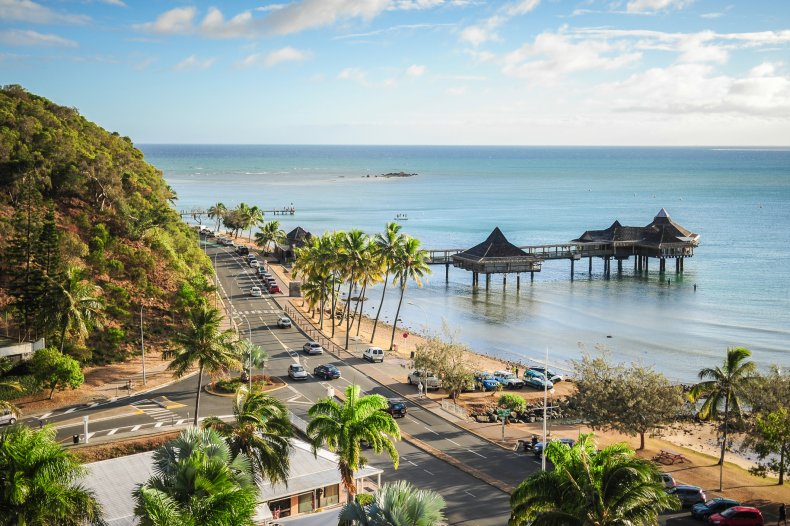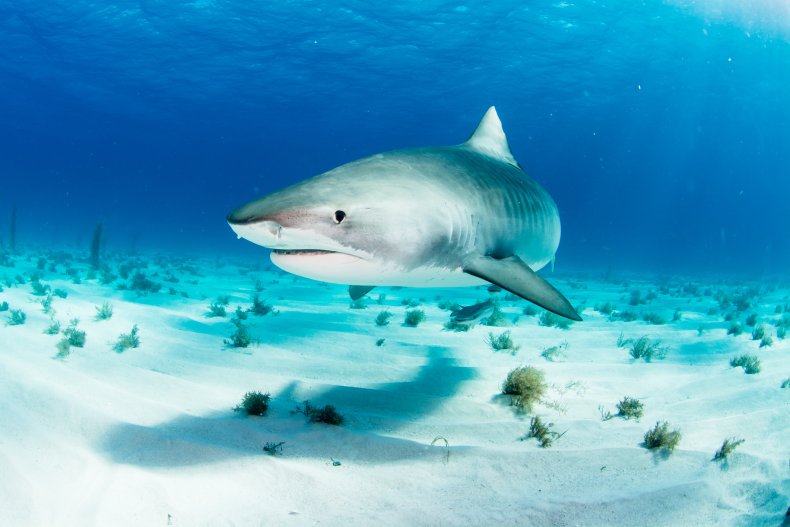New Caledonia Fatal Shark Attack Was Third Incident in Three Weeks
A 59-year-old man has died after being attacked by a shark in New Caledonia, marking the third shark attack in the area since the start of 2023.
The Australian tourist was swimming close to a pontoon when the incident took place on Sunday afternoon, about 500 feet from the popular Château Royal beach in the capital, Nouméa, located in the south of the archipelago's main island, Grande Terre.
The man was bitten several times in his legs and arms before he was taken in by nearby Jet Skiers, local channel France 1 reported. Once he had been brought ashore, paramedics performed CPR and attempted to resuscitate him. The man died at the scene.
The attack was witnessed by many people who were in the water, reported Philippines outlet ABS-CBN. This led to a panicked rush back to the beach.

The attack comes after two similar incidents in the last three weeks: on January 29, a 49-year-old swimmer was seriously injured by a shark in the area. A surfer was also attacked in the same area a few days later but escaped without injury.
Why Is New Caledonia a Shark Attack Hotspot?
New Caledonia is a French overseas territory in the southwestern Pacific Ocean, 750 miles east of Australia. Despite having a population of only 270,000 people, the archipelago is ranked 13th in the world for unprovoked shark attacks by the Florida Museum's International Shark Attack File.
The museum has documented 19 confirmed unprovoked shark attacks in the region since 1580, though researchers at the University of New Caledonia believe this is a low estimate. In a paper published in the journal Médecine Tropicale et Santé Internationale in 2022, the researchers reported roughly 70 cases of shark attack between 1958 and 2020.
While there are fewer attacks in New Caledonia than in other shark attack hotspots—like Australia and the U.S.—the researchers said that the lethality of the attacks was unusually high, averaging at about one in five.
The species responsible for the most fatalities in the area is the tiger shark, which was involved in eight of the 13 fatalities reported in the study during this period. Tiger sharks are the second-largest predatory shark species after the great white and tend to grow to around 10 to 14 feet.
It is believed that this species was involved in Sunday's attack.

The New Caledonia archipelago has also become a tourism hotspot, with many visitors participating in water sports, scuba diving and swimming. These activities increase the likelihood of encounters with the apex predators, which may confuse swimming humans for their usual prey.
Sharks can also be attracted by human behavior, such as leaving food waste and feeding fish. Sunday's attack may have been encouraged by this behavior as it took place near to a popular restaurant where guests are invited to toss food into the sea to feed the fish.
Authorities have said they are planning to cull tiger sharks and bull sharks in the area, according to France 1.
Do you have an animal or nature story to share with Newsweek? Do you have a question about sharks? Let us know via science@newsweek.com.

